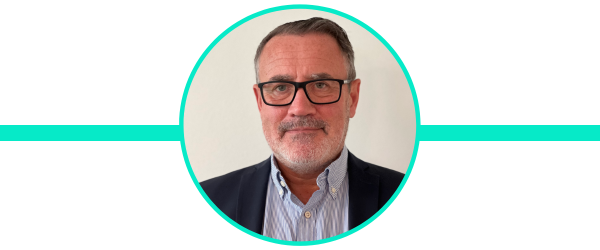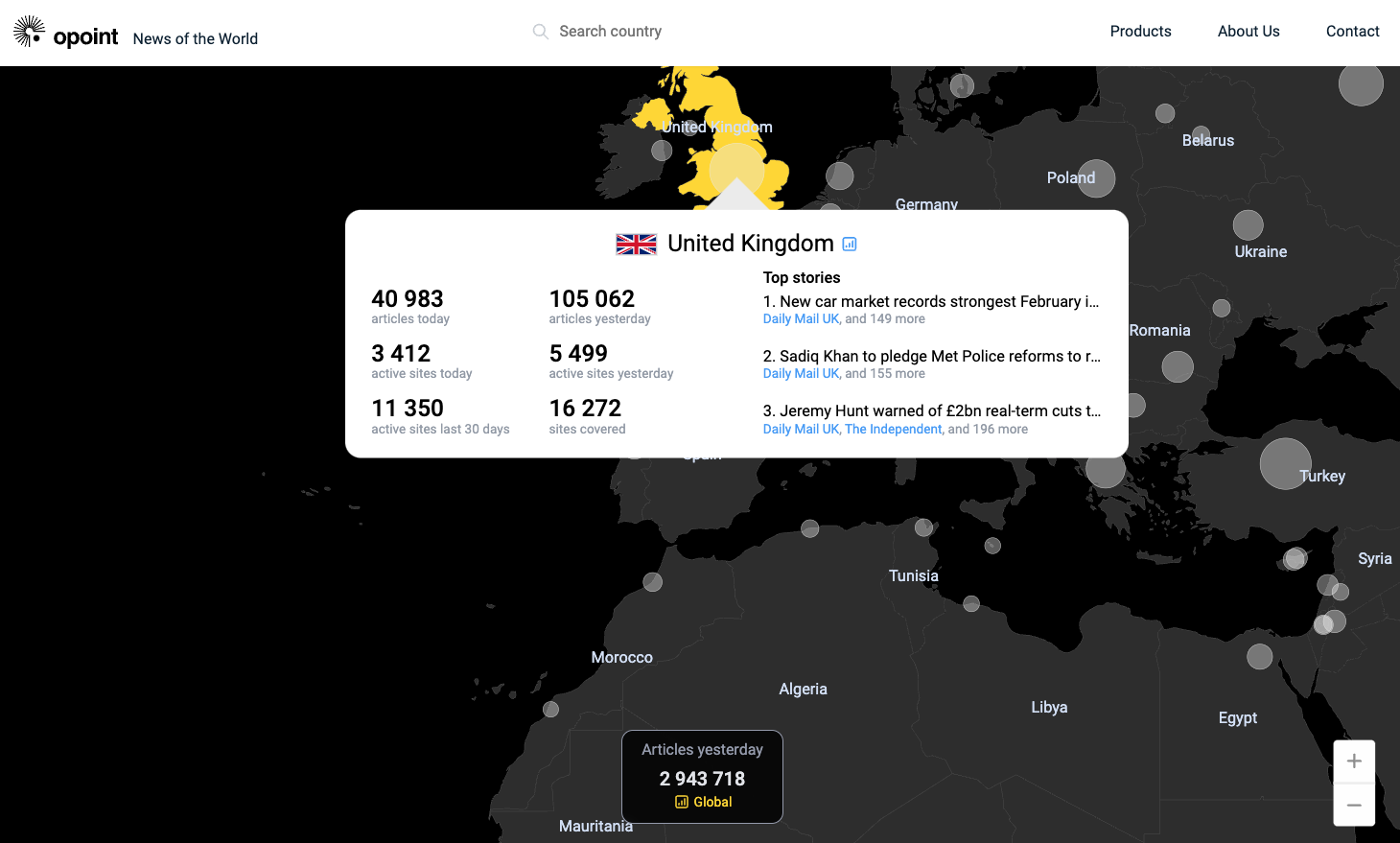New FIPP Member Spotlight: Opoint
In the digital landscape, the proliferation of content across multiple platforms presents both opportunities and challenges. Publishers require sophisticated tools to monitor the dissemination and impact of their output. Leading the way when it comes to fulfilling that need is Opoint, which offers comprehensive global news data monitoring and a specialised tracking product designed for precision and efficiency.
Opoint monitors over 230,000 sources across 220 jurisdictions, covering 120 languages and collecting more than three million articles from traditional websites every day. Its parent company, Infomedia, is the largest media monitoring business in the Nordic region and is owned by Denmark’s leading media houses, JP/Politiken and Berlingske.
Boasting teams in Denmark, Norway, the UK, the United States and India, Opoint develops all its technology internally, and has been delivering high-quality data to the market since 2001. In addition to web crawling, the company has expanded its offerings to include products for news agencies, publishers, press release distributors and content-sharing platforms.
We caught up with Jon Anders Tangnes, Chief Partnership Officer (CPO) of Opoint, to talk about the company’s expansion, the rise of AI and why it’s more crucial than ever before for publishers to filter out irrelevant online content.
How does Opoint help publishers improve their business?
We offer news tracking services that assist publishers in determining the distribution of their content and identifying potential infringements. Our unique selling propositions are the exceptional quality and speed of our crawlers. We deliver content in real time, with an average delay of just 6-8 minutes for the 3 million articles we process. Our strength lies in our collaborative approach, working closely with every market segment, from publishers to end customers. Given our ownership by media companies, we uphold strict respect for copyright, maintaining agreements that ensure revenue protection for publishers. High-quality customer support is a pillar of our service, consistently commended by our clients.

Benchmarking studies demonstrate our superior quality; we locate more articles from the common sources we monitor, oversee the most sources, and discover the most overall content. Our membership with FIPP stems from a desire to engage constructively with publishers to develop mutually beneficial solutions. We aid FIPP members in tracking their content, allowing them to assess the impact of their work and detect infringements. We can trace an article from publication to its readership.
Could you give us a case study showing how Opoint has benefitted a media company?
After evaluating several service providers, Ritzaus Bureau – Denmark’s central news agency – selected Opoint’s tracking product, delivered by Infomedia. Opoint provided Ritzaus Bureau with real-time tracking of their content, enabling continuous comparison of published articles against global online content. This process allowed Ritzaus to receive immediate insights into content distribution, identify potential copyright infringements, and understand the extent of their content’s reach and engagement. The tracking product has become an integral part of Ritzaus Bureau’s business intelligence toolkit, offering enhanced visibility into content usage and placement across the web, efficient copyright management capabilities, and insights into content performance for better strategic decisions.
How has the company’s reach grown over the years and what is the expansion plan in the future?
Opoint’s influence extends globally, impacting industries from media monitoring to financial services. The company commenced its international journey in 2007, initially focusing on the media monitoring industry. Joining industry associations such as FIBEP and AMEC, Opoint eventually secured a pivotal role in PDLN. With Infomedia’s acquisition, we intensified our investments in technology and human resources, recruiting industry-experienced individuals from sales to financial services – currently, our most significant growth area, focusing on KYC and AML processes. In 2024, we plan to further invest in our team, adding Business Development Researchers, sales personnel, and a legal expert specialising in rights and content management.
How important has providing user-friendly interfaces been in Opoint’s success? It seems to be a huge selling point that your customers can access data so easily.
Providing user-friendly interfaces has been crucial to Opoint’s success. In our industry, there are established standards, like those developed by FIBEP, that we adhere to, ensuring straightforward data access from Opoint. Our portal, developed over many years for media monitoring, is highly accessible. Customers typically retrieve content through our Safefeed or SearchApi, and our flexible technology allows us to develop bespoke solutions as requested. Our skilled IT team, based in Oslo, is capable of addressing most challenges.

Given the wealth of information out there, how important is it that the data Opoint provides is comprehensive but tailored? In other words – just how crucial is it to filter out the noise?
In the face of proliferating online information, filtering out irrelevant content is vital. Opoint excels in extracting clean text from articles, delivering just the article text without surrounding advertisements or announcements. While we can’t discern fake news or plagiarism, we have excluded numerous sources identified as purveyors of fake news. Ultimately, our customers must judge the relevance and quality of the content.
What are the biggest challenges Opoint faces in collecting data?
The greatest challenges Opoint faces are the current trends in exclusive deals, paywalls, and demands for payment for content crawling, delivery and usage. Our media house ownership instils a profound respect for copyright, compelling us to secure necessary agreements to deliver content. However, we advocate for reasonable agreements that all parties can endorse. Unreasonable pricing and access barriers benefit no one. We’re actively engaged in industry discussions through FIBEP, AMEC, and PDLN to address these issues, striving for fair pricing and easy access that also drives additional traffic to publishers’ sites.
How has the rise of artificial intelligence changed the way Opoint operates, and do you have plans to integrate more AI in the future?
Today, AI is an integral part of the media landscape. Opoint collaborates with a UK-based company that enriches our content with Entities and Topics, adhering to the IPTC standard. We’ve also developed, in partnership with Infomedia, a sentiment analysis model for Nordic languages and English. Many of our clients are pursuing their own AI initiatives, so we currently have yet to plan any major AI projects for our immediate roadmap.










